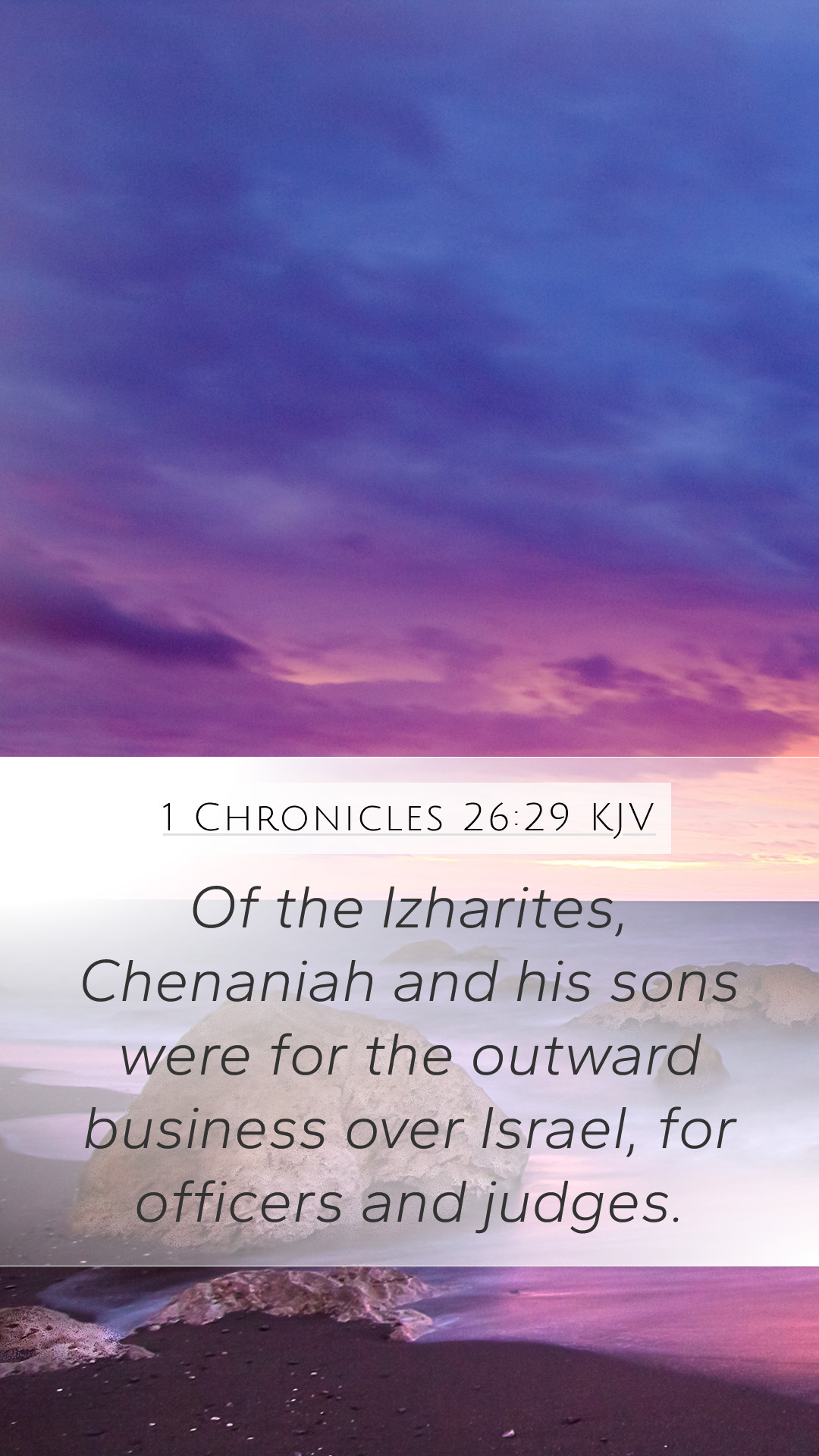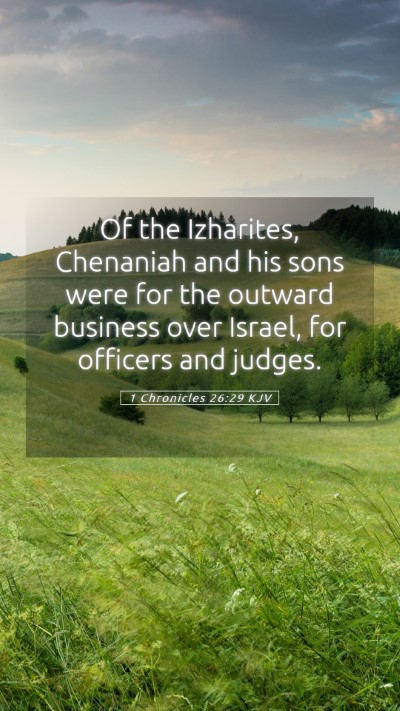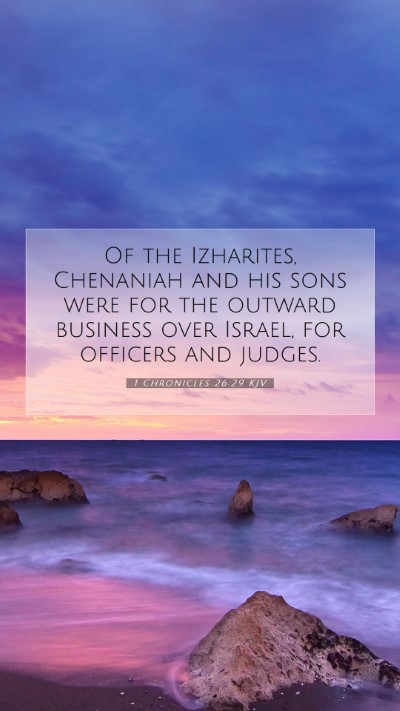Bible Verse Commentary on 1 Chronicles 26:29
Bible Verse: 1 Chronicles 26:29
“Of the Izharites, Chenaniah and his sons were for the outward business over Israel, for officers and judges.”
Summary of Meanings and Interpretations
The verse under consideration is a part of the administrative preparations made by King David for the service of the Levites and the organization of the temple services. It speaks to the structure and order that was essential for the operation of the priesthood and judges' functions in Israel. Below are insights consolidated from notable public domain commentaries.
Commentary Insights
-
Matthew Henry's Commentary:
Matthew Henry emphasizes that this verse reflects the importance of organization within the community of Israel, specifically regarding their judicial systems. The mention of the Izharites and their role indicates David’s efforts to establish responsible leadership and to ensure justice throughout the land.
-
Albert Barnes' Notes:
Albert Barnes draws attention to the roles appointed by David for overseeing various duties related to the worship and governance of Israel. He notes that the duties of Chenaniah and his sons were not trivial but carried significant weight for maintaining order and fairness within society.
-
Adam Clarke's Commentary:
Adam Clarke provides an analysis of the lineage of Chenaniah, highlighting the heritage from which these officials came. He points out that knowing the family's history offers insights into their qualifications and suitability for leadership roles, suggesting that spiritual and social responsibilities were closely aligned in the structure of Israel’s governance.
Understanding the Context
This verse fits within a broader narrative where King David is arranging the service of the Levites and establishing the structure necessary for the temple. The organizing of judges and officers reflects a commitment to justice and religious obligation. This structure is essential not only for their worship practices but also for maintaining social order.
Key Themes
- Organization in Worship: The establishment of roles and duties emphasizes the importance of order in worship practices.
- Leadership Responsibility: The verse touches on the responsibility leaders have toward their community in upholding justice.
- Heritage and Family Lineage: Understanding the lineage indicates that community roles were often tied to family background, adding a layer of traditional respect to leadership roles.
Application for Today
The principles of organization and justice within leadership can still be applied in modern-day scenarios. Whether it’s in church settings or broader community governance, the need for order, clarity, and fairness is ongoing. Additionally, evaluating our leaders based on their character and heritage can guide us toward choosing rightful leaders in various capacities.
Cross References
- 1 Chronicles 23:4 - Establishment of Levite duties
- 2 Chronicles 19:5-7 - Appointment of judges and leaders
- Exodus 18:21 - Moses' appointment of leaders
Conclusion
This passage from 1 Chronicles demonstrates principles of leadership, organization, and justice that are as relevant today as they were in ancient Israel. Understanding Scripture through such lenses provides believers with biblical exegesis that not only enlightens their faith but also equips them for practical application in their lives.
For those engaging in bible study groups, this verse opens a rich dialogue about the characteristics of effective leadership and community organization. Whether conducting online bible studies or using bible study tools, this scripture serves as a foundation for exploring deeper themes of justice, worship, and authority.


